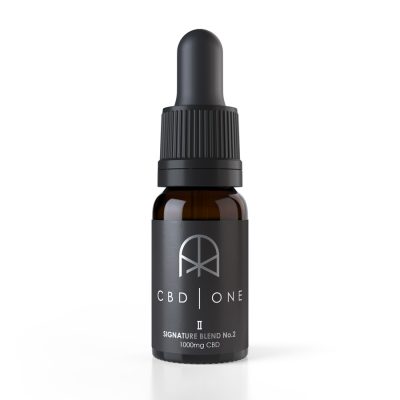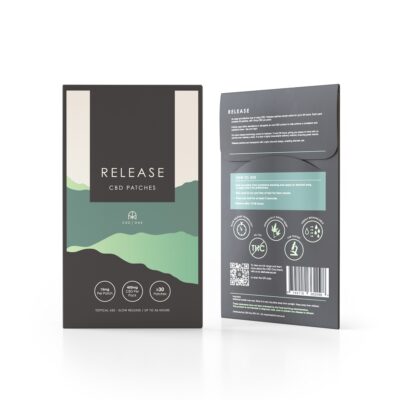
Let's address the question head-on: does CBD oil cause diarrhoea? The short answer is no, but it's a bit more complicated. While CBD is generally well-tolerated by most people, some individuals may experience certain side effects, including diarrhoea.
CBD, or cannabidiol, is a natural compound found in the hemp part of the cannabis plant. Unlike its famous cousin THC, CBD is non-psychoactive, meaning it won't get you high. It interacts with the body's endocannabinoid system, a network of receptors that helps regulate various functions, including digestion.
However, CBD can influence digestion, and that influence can go both ways. While diarrhoea is a possibility for some, others might experience constipation. The key factors seem to be dosage and individual sensitivities.
Throughout this article, we'll explore why some folks experience diarrhoea after taking CBD oil, how to choose a product that minimises adverse effects, and how to find your sweet spot for optimal gut health.
Let's dive in.
Let's first take a look at how CBD interacts with the digestive system as this will help us understand why CBD oil products may cause diarrhoea.
When you ingest CBD orally (in the form of capsules, tinctures, or edibles), it enters your digestive tract. From there, it travels to the liver, where enzymes break down the compound into smaller particles that the body can absorb.
Once absorbed, CBD enters the bloodstream and interacts with receptors in the endocannabinoid system. Cannabinoid receptors (CB1 and CB2) are found throughout the body, including in the digestive tract.
These receptors help regulate digestion, inflammation, and pain. This is why some people use CBD to try and alleviate digestive issues like irritable bowel syndrome (IBS) or inflammatory bowel disease (IBD).
However, just like any medication or supplement, CBD can have an individualised effect on different people. Let's take a closer look at why some individuals might experience diarrhoea with CBD.
So, why do some people experience diarrhoea after taking CBD oil? There are a few potential reasons:
High doses of CBD oil can disrupt your digestive health. This is especially true for new users. Think of your gut as a finely tuned ecosystem. Introducing a new compound, even a natural one like CBD, can upset its delicate balance.
If you're new to CBD, start with a small dosage and gradually increase it until you find your optimal dose. This method allows your body to adjust slowly, minimising the chances of digestive discomfort.
As mentioned earlier, everyone's body is unique. Some people may be more sensitive to certain compounds than others. In the case of CBD, this could be due to pre-existing digestive issues or food sensitivities.
If you have a history of gastrointestinal problems or are sensitive to certain foods, paying attention to how your body responds when taking CBD oil is essential. If you experience any adverse effects like diarrhoea or abdominal pain, it may be a sign that your gut isn't responding well to the CBD.
Many CBD products are suspended in carrier oils like MCT oil for easier consumption. While generally safe, some carrier oils have a laxative effect. This means they can speed up food movement through your gastrointestinal tract, potentially leading to diarrhoea in some individuals.
If you suspect that the carrier oil could be causing your digestive discomfort, look for products with a different carrier oil. CBD One uses hempseed oil as our carrier oil which is high in omega 6 and 3, so you'll enjoy some health benefits just from the hemp oil alone!
On the flip side, some people may experience constipation after taking CBD oil. This can be due to several reasons:
So, how can you avoid experiencing adverse effects of CBD on your digestive health? Here are a few tips:
While there is still much research to be done on CBD and its effects on digestive health, some studies have shown promising results. For instance:
These studies and experiences highlight the diverse potential of CBD in addressing various digestive issues, although more comprehensive research is needed to fully understand its effects and optimal use. As always, consult with your medical professional before incorporating CBD into your wellness routine.
Let's recap what we've learned about CBD oil, diarrhoea, and constipation. While CBD oil is generally well-tolerated, high doses or individual sensitivity might lead to diarrhoea. Conversely, CBD's influence on gut motility can also cause constipation in some users.
The good news? CBD oil can potentially support a healthy digestive system when used correctly. By starting with a low dose and gradually increasing it, you can find your personal sweet spot and minimise the risk of any digestive discomfort.
Ready to explore the possibilities? Head over to our range of high-quality CBD oils to discover the perfect product for your needs. Remember, start low and go slow to find your ideal CBD balance and unlock the potential benefits for your gut health.
CBD has shown potential in improving symptoms of inflammatory bowel diseases (IBD). The anti-inflammatory properties of CBD may help reduce inflammation and discomfort associated with IBD. However, it's important to note that more research is needed before making any definitive claims about the effectiveness of CBD for IBD. It's always best to seek professional medical advice when considering using CBD for any health condition.
While CBD oil is generally well-tolerated, it can cause side effects in some individuals. These side effects may include nausea, diarrhoea, and changes in appetite. However, using high-quality CBD oil and starting with a low dosage can help minimise the risk of experiencing these symptoms.
If you are currently taking any medication, it's essential to consult with your doctor before incorporating CBD oil into your routine. CBD can interact with some medications and may affect their effectiveness. Your doctor will be able to advise on the best course of action for your specific situation.
As long as you use high-quality CBD oil and follow recommended doses, it is generally safe for regular use. However, if you start to experience any negative side effects or discomfort, it's crucial to consult your doctor and adjust your dosage as needed.


Bioavailability:?Bioavailability | 99% |
CBD content:?CBD content | 800mg | 1600mg | 4000mg |
Cannabinoid spectrum:?Cannabinoid spectrum | Full |
| Daily use: | Once daily |
Best for:?Best for | Powerful water-soluble option |

Bioavailability:?Bioavailability | 12 % |
CBD content:?CBD content | 1000mg | 2000mg | 5000mg |
Cannabinoid spectrum:?Cannabinoid spectrum | Full |
| Daily use: | 1-3 times |
Best for:?Best for | All round oil |

Bioavailability:?Bioavailability | 99% |
CBD content:?CBD content | 400mg | 800mg | 2000mg |
Cannabinoid spectrum:?Cannabinoid spectrum | Full |
| Daily use: | Once daily |
Best for:?Best for | Great all-rounder |

Bioavailability:?Bioavailability | 40%+ |
CBD Content:?CBD Content | 450mg | 900mg | 1350mg |
Cannabinoid spectrum:?Cannabinoid spectrum | Pure CBD |
| Daily use: | Once |
Best for:?Best for | Round the clock super-effective dosing |